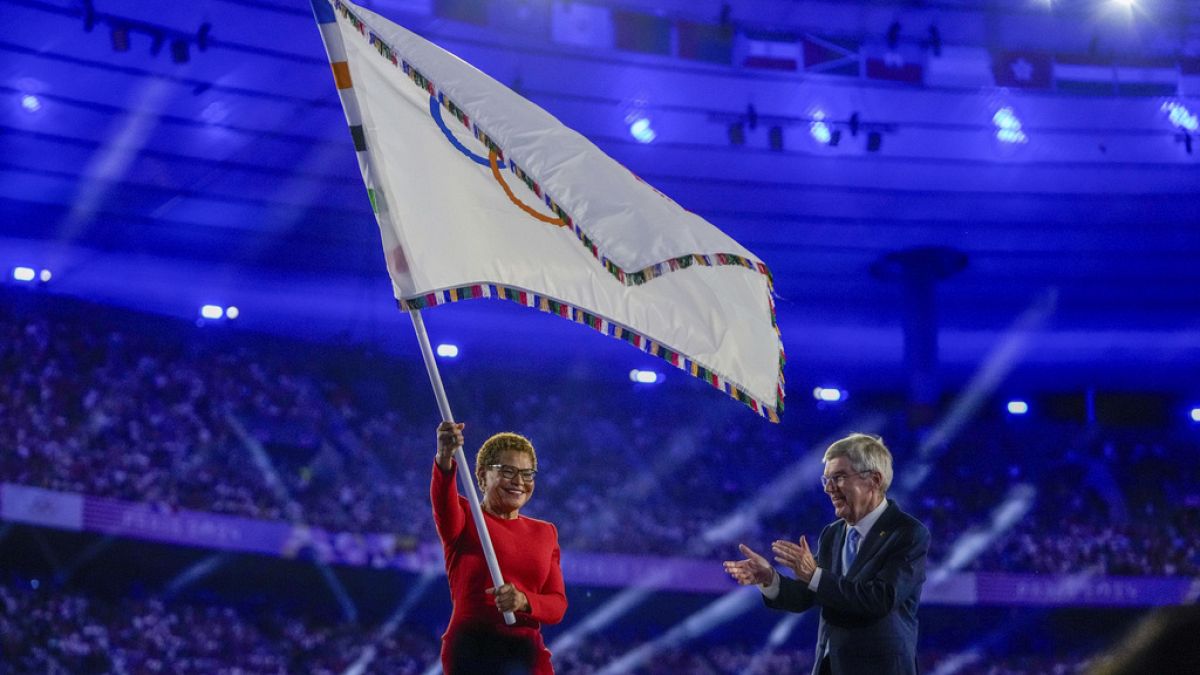The 2028 Olympic Games are set to take place in Los Angeles from July 14 to July 30, marking the third time the US West Coast city will be hosting the prestigious event. Mayor Karen Bass accepted the Olympic flag at the closing ceremony of the Paris 2024 Olympics, with Hollywood star Tom Cruise kicking off the four-year countdown to the 2028 games. Los Angeles previously hosted the Olympics in 1932 and 1984, placing it among just two other cities to have hosted the Summer Games three times, along with London and Paris. Mayor Bass has promised that the upcoming Olympics will bring transformative change to the vibrant city of Los Angeles.
One of the key focuses for the 2028 Olympics in Los Angeles is public transportation. The city plans to revamp existing structures instead of building new ones, creating what is referred to as “no-build games.” All Olympic venues are set to be easily accessible through public transportation alone, aligning with the city’s commitment to reduce vehicle traffic during the event. Mayor Bass intends to implement strategies to minimize traffic congestion, drawing inspiration from previous successful efforts during the 1984 Olympics. LA has also bolstered its public transportation system since the last Olympics, including the extension of a subway line to connect major venues.
Amid preparations for the 2028 Olympics, Los Angeles faces the challenge of living up to the successful execution of the Paris 2024 Olympics. Paris showcased its majestic cityscape during the recent Olympic Games, utilizing iconic landmarks like the Eiffel Tower as backdrops for events. Los Angeles is gearing up to host other major sporting events leading up to the 2028 Olympics, such as hosting a FIFA World Cup event in 2026 and another Super Bowl in 2027. The city’s hotel industry has seen substantial growth in recent years, with plans for additional hotel room additions in the coming years to accommodate the influx of visitors during the Olympics.
Organizers of the 2028 Olympics in Los Angeles are relying on various revenue streams to cover the games’ estimated budget of $6.9 billion (€6.3 billion). These revenue sources include ticket sales, sponsorships, payments from the International Olympic Committee, and other funding avenues. The committee has secured over €920 million in domestic corporate sponsorships, working towards the goal of reaching €2 billion in total sponsorships. Major projects, such as the Inglewood People Mover, an automated rail line connecting key Olympic venues, are underway, albeit facing challenges in terms of completion before the start of the games.
The 2028 Olympics in Los Angeles present a significant opportunity for the city to showcase its modernity, cultural significance, and commitment to hosting world-class events. With a focus on sustainability, accessibility, and transformative change, the organizers are determined to create a memorable experience for athletes, visitors, and residents alike. The city’s ambitious public transportation plans, funding strategies, and extensive preparation period set the foundation for a successful and impactful Olympic Games in 2028. Los Angeles is poised to make history once again as it prepares to host the Summer Games for the third time and leave a lasting legacy for future generations.











